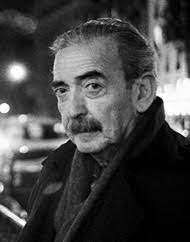(October 18, 2019) Diego Tapia Figueroa, Ph.D. and Maritza Crespo Balderrama, M.A. «Culture is looking at the other. Respect is looking at the other once again.» (Tom Andersen and John Shotter) Attention: For the box check: https://iryse.org/investigacion-relacional-dialogica-i/ First part (October 18, 2019) Embracing complexity (*) Research is for connecting, «for embracing complexity» as proposed by Sheila McNamee (at the Taos Institute’s International Relational Research Network). The research method (dialogic relational research) becomes a resource that contributes to people being able to engage, participate, reflect and act in directions they co-create. The research will be a process in which we generate the conditions to relate to the new, the different. A…
-
-
Beginning, development, and closure of therapeutic processes (first part)
(February 22, 2019) Diego Tapia Figueroa, Ph.D. and Maritza Crespo Balderrama, M.A. First part In our daily therapeutic practice, we often ask ourselves about how to put the being of the therapist (or the person who provides care) at the service of the process of meaningful reflection and responsible transformation of the consultant. We work from a social-constructionist position (and, in that context, this sequence is an invitation to reflect with our readers; we trust that it contributes, that it is useful and serves as people will take it freely; it is not a step-by-step guide or a recipe book to follow; it is an invitation to a possible path,…
-
La agotadora e incesante pandemia
Diego Tapia Figueroa, Ph.D. y Maritza Crespo Balderrama, M.A. “El único verdadero viaje de descubrimiento consiste no en buscar nuevos paisajes, sino en mirar con nuevos ojos” (Marcel Proust) Aceptar y abrazar la incertidumbre y la complejidad como un camino posible para dar sentido a nuestras existencias, es lo que podemos hacer para invitar a conectarnos con lo humano diverso, alegre y doloroso; hacerlo desde una perspectiva rizomática, que permanentemente crea conexiones, relaciones con los otros, construyendo -y construyéndonos conversacionalmente en diálogos reflexivos y significativos- un diálogo transformador, que eso es crear un lenguaje común para un futuro con posibilidades. Desde nuestro contexto, en Ecuador vemos que aquí, al igual que…
-
Los conceptos, las ideas, las frases
Diego Tapia Figueroa, Ph.D. y Maritza Crespo Balderrama, M.A. Cada 15 días propondremos breves frases de 1 o 5 autores significativos -a veces, distintos- que, sean disparadores de sentido, para nuestros diálogos reflexivos. I. Emily Dickinson “No conozco nada en este mundo que tenga tanto poder como la palabra. A veces escribo una y la miro hasta que comienza a brillar”. II. Franz Kafka “Todo lo que amas, eventualmente, lo perderás; pero al final, el amor volverá en una forma diferente”. III. José Martí “Todo está dicho ya; cada vez que son sinceras, son nuevas”. IV. Joseph Brodsky “…todo hombre tiene un amigo imaginario/el mío se llamaba Wystan Hugh Auden./Yo…
-
Juan Gelman
Oración Habítame, penétrame. Sea tu sangre una con mi sangre. Tu boca entre a mi boca. Tu corazón agrande el mío hasta estallar. Desgárrame. Caigas entera en mis entrañas. Anden tus manos en mis manos. Tus pies caminen en mis pies, tus pies. Árdeme, árdeme. Cólmeme tu dulzura. Báñeme tu saliva el paladar. Estés en mí como está la madera en el palito. Que ya no puedo así, con esta sed quemándome. Con esta sed quemándome. La soledad, sus cuervos, sus perros, sus pedazos.
-
SERIES: IN FAVOR OF THE HUMAN RIGHTS OF CHILDREN AND ADOLESCENTS
(September 2021) RELATIONAL INTELLIGENCE WITH CHILDREN (Systematization: Quito, 2002-2021) Diego Tapia Figueroa, Ph.D. and Maritza Crespo Balderrama, M.A. What is emotional-relational intelligence? Emotional-relational intelligence translates into the ability to be with others, to connect in meaningful ways, not to be dominated and oppressed by adversity; to take responsibility for one’s life, and to build relationships based on relational ethics with others. It is not enough to enhance the IQ of the child; we must commit ourselves to contribute in creative and loving ways with their relational being, and even more, if we consider that numerous intellectual and school difficulties have their origin in emotional blocks and in the culture of…
-
Rethink complexity, uncertainty, mystery; the words to say, to come; with a language of different possibilities, with love.
Diego Tapia Figueroa, Ph.D. y Maritza Crespo Balderrama, M.A. December 14, 2018 To dialogue is to allow ourselves to be touched and to connect with the words of others; to find within us the intelligent words of others, reflected with sensitivity in the produced resonance once we open ourselves (welcome) to be interwoven relationally by those transformative words. It is to answer dialogues to generate new dialogues. We dialogue with the question because we can put everything in question -about the meaning- to tell us that everything can be different. The other is an interlocutor (an equal) not a victim or an enemy; it is an interlocutor with co-responsibilities in…
-
¿Cómo construir -disfrutando y dejando disfrutar- relaciones con ética relacional?
Diego Tapia Figueroa, Ph.D. y Maritza Crespo Balderrama, M.A. “Todo lo que hago, lo hago con alegría.” Michel de Montaigne (trad. en 2007, p.588) Los tiempos actuales -es algo recurrente desde que hay tiempos humanos, decir cosas así- parecen estar caracterizados por nuevas generaciones entrenadas en una lógica demandante, de carácter casi absolutista. Esperan y exigen que sus deseos y necesidades se satisfagan de inmediato por parte de sus padres y madres: ¿Me quieres? Pues tu misión es complacerme, evitarme la frustración, la espera, la paciencia y el trabajo para la construcción del mañana. Mi comodidad y egoísmo, mis miedos y prejuicios imponen el inmediato hoy, este instante. Lo tuyo no…
